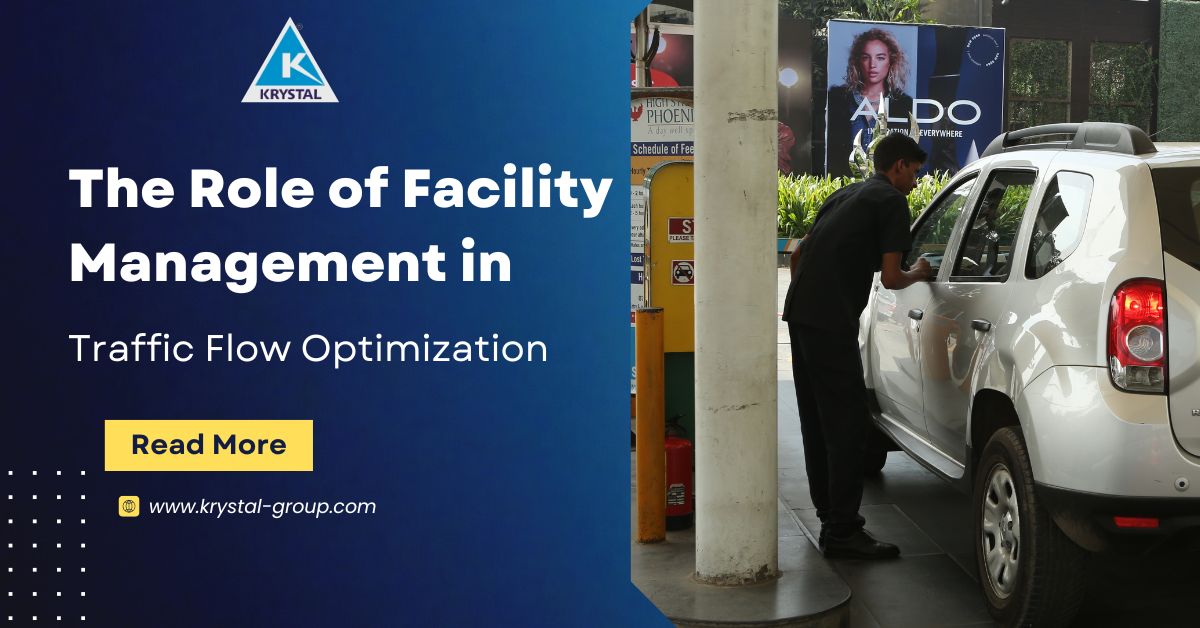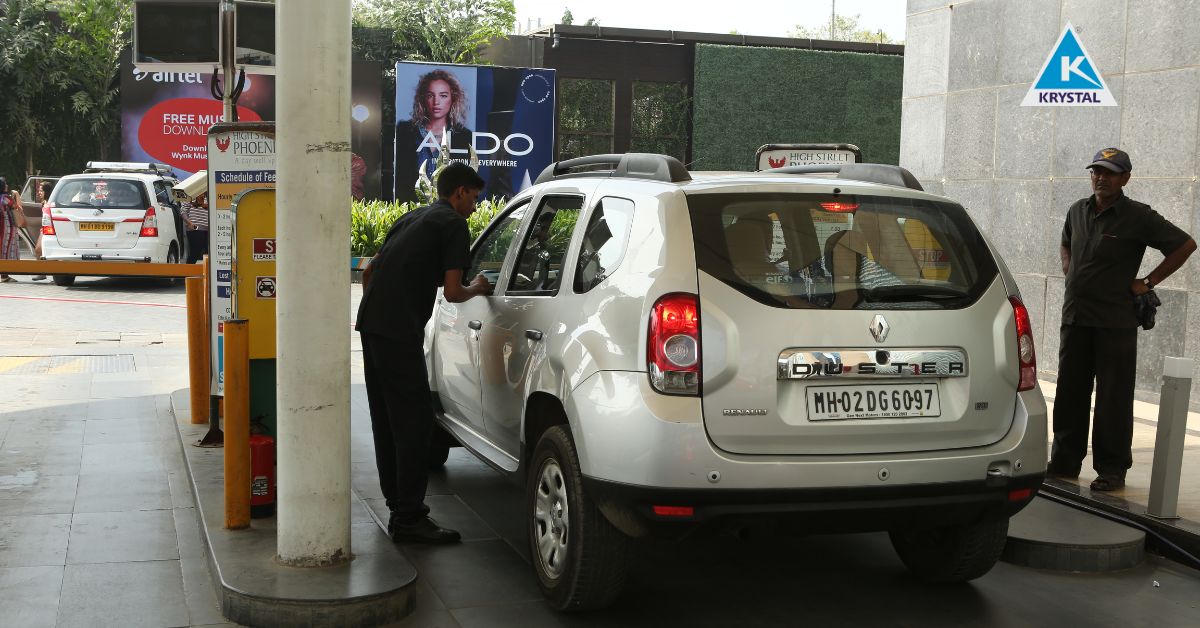
Introduction:
In the ever-evolving urban environment, traffic congestion stands as a significant challenge, impacting daily commutes and hindering economic activities. At Krystal Integrated Services Ltd, we recognize the pivotal role of Facility Management in addressing this issue. In this blog, we delve into how our expertise in Facility Management contributes to the optimization of traffic flow, fostering more efficient urban mobility.

Facility Management
1. Strategic Parking Solutions:
Facility Management is at the forefront of resolving parking challenges to streamline traffic. Our experts analyze urban spaces to identify optimal locations for parking facilities. We design user-friendly layouts and integrate smart technologies such as automated ticketing systems, ensuring a seamless and efficient parking experience that minimizes congestion.
2. Traffic Signal Coordination:
Coordinated traffic signals are essential for maintaining a continuous flow of vehicles. Krystal’s Facility Management teams conduct thorough analyses of traffic patterns, peak hours, and congestion-prone areas. By implementing synchronized signal timings, we minimize wait times at intersections, reduce fuel consumption, and contribute to a more environmentally friendly urban environment.
3. Smart Infrastructure Maintenance:
Beyond initial setup, Facility Management involves continuous infrastructure maintenance. Regular inspections, repairs, and upgrades are prioritized to ensure that roads, bridges, and transportation assets remain in optimal condition. This proactive approach minimizes the risk of sudden breakdowns or closures, preventing disruptions to traffic flow.
4. Data-Driven Decision Making:
In the era of smart cities, Krystal Integrated Services Ltd leverages data analytics to make informed decisions. Our Facility Management professionals collect and analyze data from various sources, including traffic cameras, sensors, and user feedback. These insights enable us to identify bottlenecks, predict traffic patterns, and implement targeted solutions for a more responsive and adaptive traffic management system.
5. Community Engagement and Education:
Krystal’s commitment to Facility Management extends beyond physical infrastructure to community engagement and education initiatives. We believe in raising awareness about responsible driving, promoting alternative transportation options, and emphasizing the importance of adhering to traffic rules. This cultural shift towards responsible mobility positively impacts traffic flow and safety.
Conclusion:
At Krystal Integrated Services Ltd, Facility Management is not merely a service but a commitment to shaping efficient and sustainable urban spaces. Through strategic parking solutions, synchronized traffic signals, smart infrastructure maintenance, data-driven decision-making, and community engagement, our Facility Management expertise plays a pivotal role in creating cities where traffic flows seamlessly. As we navigate the challenges of urbanization, Krystal remains dedicated to enhancing the quality of life for all through innovative and effective traffic flow optimization.
Comments on “The Role of Facility Management in Traffic Flow Optimization”